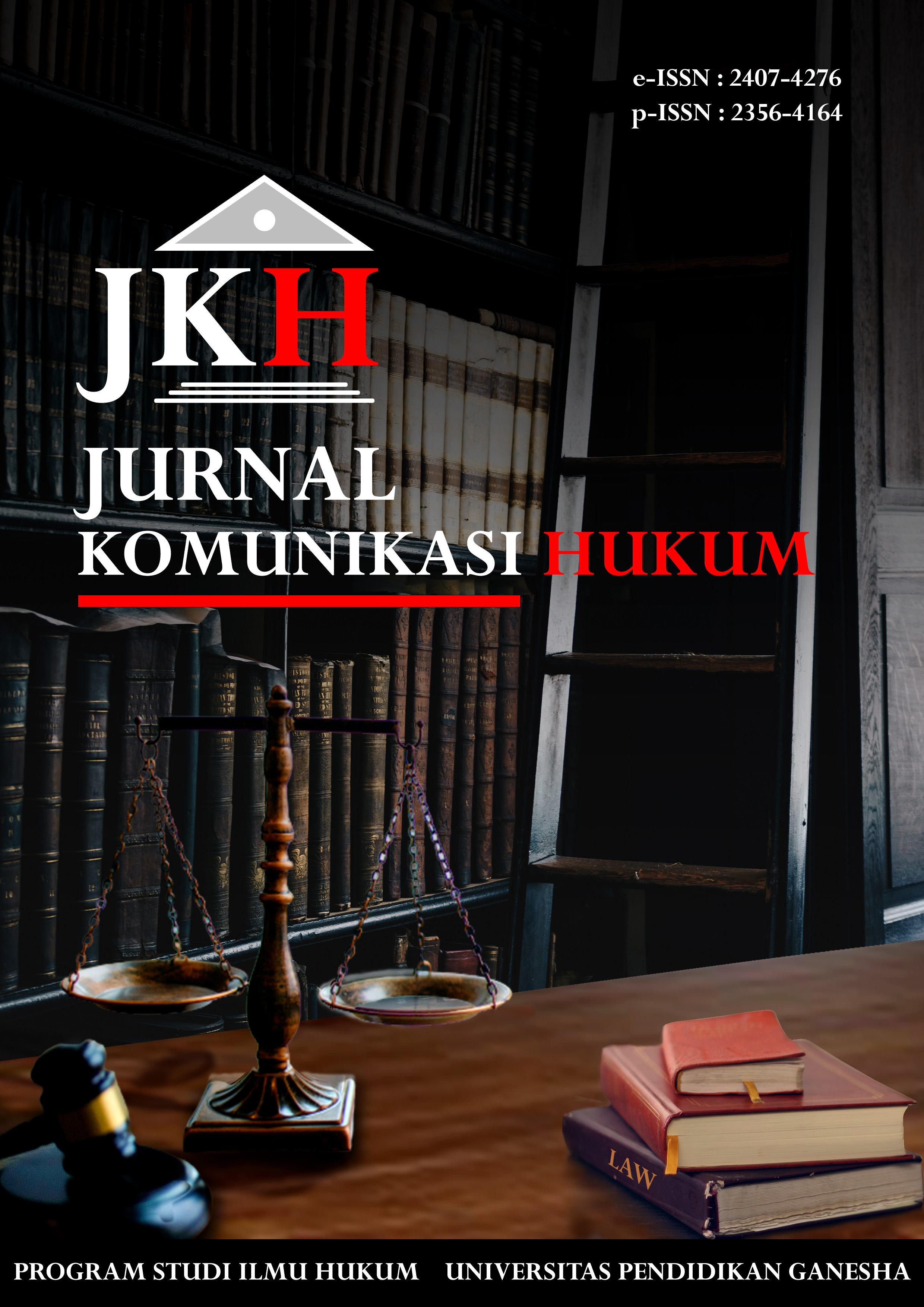Komparasi Penyelesaian Perkara Pidana Kejahatan Genosida yang Terjadi di Rwanda dan Myanmar Ditinjau Dari Perspektif Hukum Pidana Internasional
DOI:
https://doi.org/10.23887/jkh.v7i1.31466Keywords:
Genocide, Settlement Efforts, Comparative LawsAbstract
This study aims (1) to analyze and find out the efforts to resolve genocide disputes from the perspective of international criminal law, (2) to determine the comparison of resolving genocide disputes that occurred in Rwanda and Myanmar. This type of research uses normative legal research, namely literature study, rules and literature related to genocide, and uses an argumentative descriptive approach. The results of this study explain the efforts and comparisons of resolving genocide disputes that occurred in Rwanda and Myanmar from the perspective of international criminal law. Genocide is an international crime that aims to eliminate ethnicity, ethnicity, race and religion in a systematic and structured manner. Efforts to resolve disputes are carried out in an international criminal manner and are handled by the International Criminal Court. The International Criminal Court is the highest judicial institution, and has the authority to handle international cases. comparative law is a method of investigation with the aim of obtaining deeper knowledge about certain legal materials. Comparative law is not a set of rules and legal principles and is not a branch of law, but is a technique for dealing with foreign legal elements from a legal problem. Court. The International Criminal Court is the highest judicial institution, and has the authority to handle international cases
Downloads
Published
How to Cite
Issue
Section
License
Authors who publish with this journal agree to the following terms:- Authors retain copyright and grant the journal right of first publication with the work simultaneously licensed under a Creative Commons Attribution License that allows others to share the work with an acknowledgement of the work's authorship and initial publication in this journal.
- Authors are able to enter into separate, additional contractual arrangements for the non-exclusive distribution of the journal's published version of the work (e.g., post it to an institutional repository or publish it in a book), with an acknowledgement of its initial publication in this journal.
- Authors are permitted and encouraged to post their work online (e.g., in institutional repositories or on their website) prior to and during the submission process, as it can lead to productive exchanges, as well as earlier and greater citation of published work (See The Effect of Open Access).
Authors who publish with this journal agree to the following terms:
- Authors retain copyright and grant the journal right of first publication, with the work [SPECIFY PERIOD OF TIME] after publication simultaneously licensed under aCreative Commons Attribution License that allows others to share the work with an acknowledgement of the work's authorship and initial publication in this journal.
- Authors are able to enter into separate, additional contractual arrangements for the non-exclusive distribution of the journal's published version of the work (e.g., post it to an institutional repository or publish it in a book), with an acknowledgement of its initial publication in this journal.
- Authors are permitted and encouraged to post their work online (e.g., in institutional repositories or on their website) prior to and during the submission process, as it can lead to productive exchanges, as well as earlier and greater citation of published work (See The Effect of Open Access).












